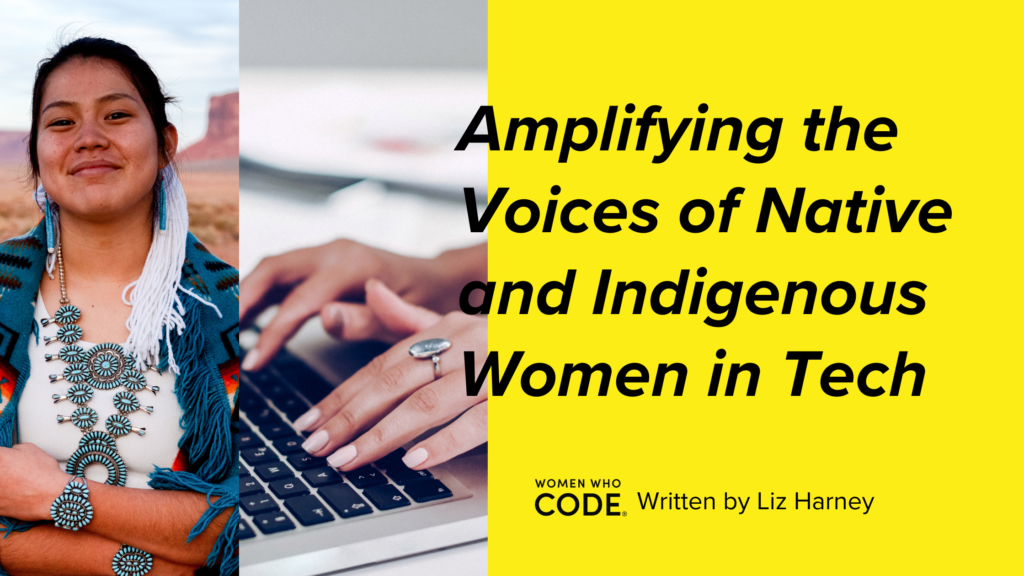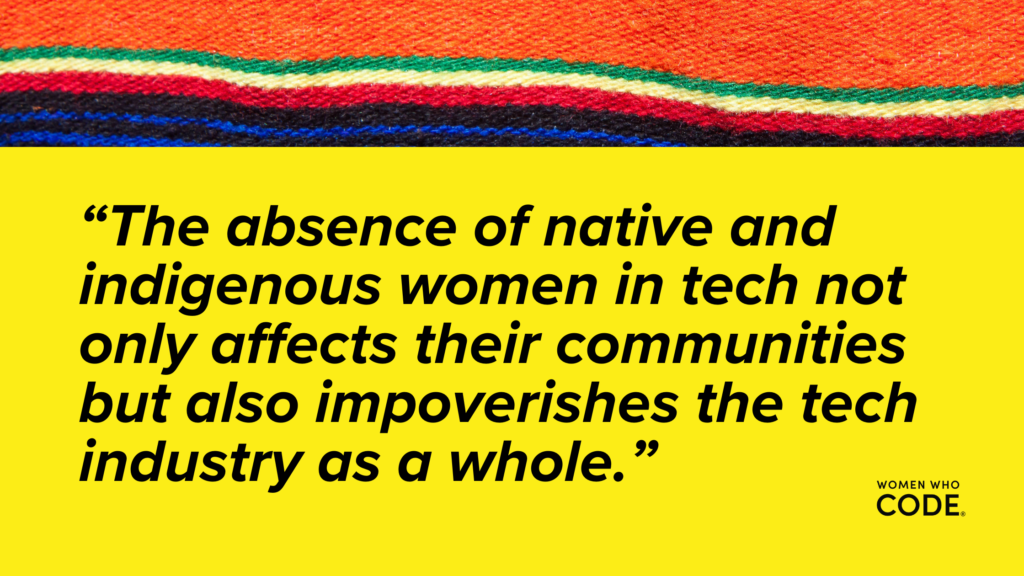Amplifying the Voices of Native and Indigenous Women in Tech
Written by Liz Harney

The tech industry has long been dominated by a narrow demographic, leaving an innovation gap where perspectives of diverse cultures, especially Native and Indigenous women, are underrepresented. These women are more than just potential participants in the tech industry; they are bearers of ideas and innovative solutions that stem from a blend of lived experience and unique knowledge. However, current statistics reveal a stark disparity that can’t be overlooked.
Native American communities face a strikingly low high school graduation rate of just 51%. This issue compounds when we look at computer science education — a field where Native Americans are the least represented of all groups, with Indigenous women facing the greatest disparities. The data speaks volumes: of the 104,874 bachelor’s degrees in computer science awarded in 2021, only 68 — an astoundingly low .0006% — were earned by Native American or Alaskan Native women. It’s important to also note the immense wage gap experienced by native and indigenous women. Native and Indigenous women earn half the wage of white non-Latino men in general, leading to $1.1 million in wage loss over a 40-year career. In the tech industry, native and indigenous women earn $0.60 for each $1 of white non-Latino men.
These statistics are the results of broader systemic issues that include inadequate access to education, cultural biases, and a lack of representation. Many Native and Indigenous communities do not have the necessary resources or access to educational programs that emphasize STEM/STEAM. Additionally, the financial strain of college can be a huge barrier of entry for many, with the Indigenous populations facing higher levels of poverty.

These numbers aren’t just statistics; they represent lost opportunities, unheard voices, and untapped potential. The absence of Native and Indigenous women in tech not only affects their communities but also impoverishes the tech industry as a whole. Diversity in tech is not just about fairness or equality—it’s about enriching the industry with different perspectives that drive innovation and creativity.
Despite these challenges, Native and Indigenous women are stepping forward as agents of change. Suzanne Kite, an Oglala Lakota scholar, is making profound strides as a research assistant and global coordinator of the Initiative for Indigenous Futures where she explores the intersection of AI and Lakota ethics. Bobbie Racette, a trailblazer of Cree-Matis heritage, has harnessed her personal challenges into a force for community good with her company, Virtual Gurus. Virtual Gurus connects people to personal assistants from underrepresented communities. Lisa Mae Brunson, with her heritage of Black, Indigenous, and Latina roots, is dismantling the barriers she once faced through her non-proft Wonder Women Tech and fostering a community that celebrates diversity in STEM. Together, these formidable women not only champion the representation of native and indigenous perspectives in technology but also embody the transformational impact that diverse voices can have in reimagining and reshaping the tech industry.
Native and Indigenous women in tech deserve to have the same access and opportunities without additional barriers of entry. Scholarships and educational programs specifically targeted toward Indigenous women can provide the necessary resources and support to navigate the road to a STEM career. Mentorship programs that connect native and indigenous women with role models in tech can inspire and guide them. Furthermore, tech companies can commit to creating inclusive workplaces that value diverse backgrounds and experiences, fostering an environment where Native and Indigenous women can thrive.